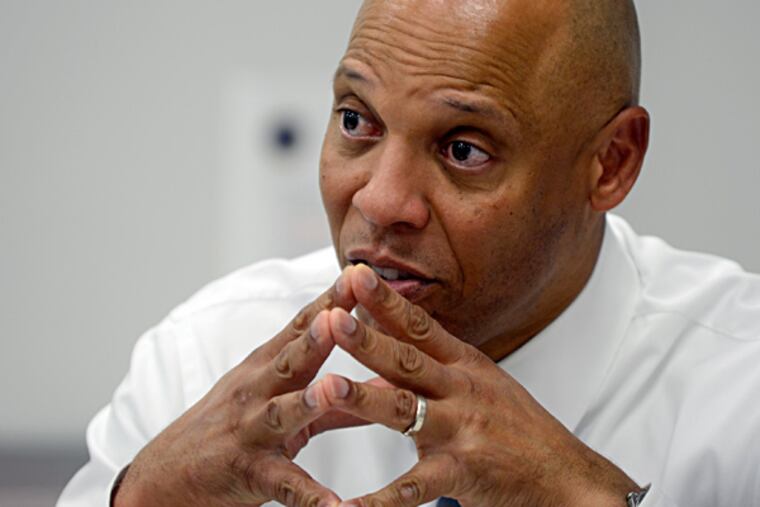Inquirer Editorial: Keep politics out of it
The counterattack has begun. State Sen. LeAnna Washington has joined the ranks of those speaking out against plans to shut down three dozen nearly vacant and poorly performing city schools. But the School District must stand firm against growing opposition to the plan.

The counterattack has begun. State Sen. LeAnna Washington has joined the ranks of those speaking out against plans to shut down three dozen nearly vacant and poorly performing city schools. But the School District must stand firm against growing opposition to the plan.
Washington has released a statement in which the Philadelphia Democrat wrongly implies the district's real problem may be hiring executives from out of state. Superintendent William Hite Jr. came here from Prince George's County, Md., in October.
"The last four superintendents have each come from out of state," Washington said. "If we hired from Pennsylvania's pool of talented and qualified education professionals - folks who understand the needs of our education system - the money that we save could go directly back into our school system to help our students learn."
The legislator also questioned whether the district had cut enough spending in its central office before resorting to closing schools to balance its budget. But the district has dramatically reduced its headquarters personnel in the past year, and is considering a proposal in a consultant's report to give even more decision-making authority to the schools.
Other concerns about the shut-down plan, which includes reassigning 17,000 children, have been made by students and parents who fear violence may break out when antagonists from different neighborhoods find themselves attending the same school.
The strong possibility of increased violence must be addressed not only by the district, but by the Police Department, which may need to reassess its deployment strategies for those hours when students are traveling to and from school.
But violence is already a daily reality for Philadelphia students, and by itself is not enough reason to drop the school-closing plan.
That's not to say the plan should be written in stone. Adjustments should be made where possible. A school targeted for closure that's doing an outstanding job should get a reprieve if a way can be found to make that possible.
What should not happen is to have politics decide the final list of schools to be closed. While it may be easier for elected officials to play to their respective constituencies by joining the bandwagon to save a particular school, it would be far more helpful to the city as a whole to take a more objective view of this process.
Elected officials do have a role to play. They can make sure the School Reform Commission's growing affection for charters doesn't shortchange improving traditional schools that deserve more support. They can see to it that the emphasis on charters also includes increased efforts by the SRC and the state to make sure those schools meet academic and fiscal standards.
Shutting down nearly empty and academically failing schools makes sense. That alone won't cure the district's financial ills, but it's an important step. The process will be cumbersome. Decisions affecting not only thousands of children, but the future development and appearance of the city, must be made. There will be arguments. But this is the right course to take.